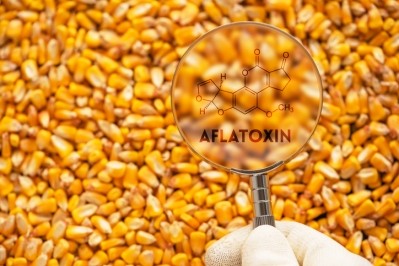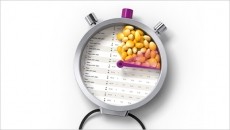Dispatches from World Nutrition Forum in Cape Town
MyToolBox: Have mycotoxins finally met their match?
The four-year, €5m backed EU project is aimed at the reduction of mycotoxin contamination of crops. It got underway in March 2016, and involves a multidisciplinary team of scientists, engineers and IT specialists as well as policymakers, academic and industry partners.
We caught up with the project lead, Professor Rudolf Krska of the University of Natural Resources and Life Sciences (BOKU) in Vienna, at the World Nutrition Forum in Cape Town, organized by Biomin. He told us about the milestones reached so far.
The EU produces yearly about 133 million tons (Mt) of wheat, 68Mt of maize and 8Mt of oats. Mycotoxin contamination results in €1.2 to €2.4bn in lost income for wheat alone in the EU, and a reduction in such losses of only 1% would save somewhere between €12 to 24m, said the partners.
The research partners have made great strides in both pre and post-harvest mycotoxin mitigation strategies, he explained.
In terms of silo management, they have produced sensors that measure temperature, humidity and CO2 and using those, in combination with models developed by Cranfield University in the UK, they can predict infection by fungi in the grain silos, providing silo managers an early warning system about potentially elevated levels of mycotoxins.
“This is particularly relevant for China, as they tend to store grains in big silos, each of those accommodating some 6,000 tons of wheat, for example.”
Another area that the research partners have had noted success is in control of aflatoxin contamination of maize during cultivation.
Reduction of mycotoxins in DDGS
Biomin is among the stakeholders involved in MyToolBox. Using its purified enzymes, Prof Krska said the team has also been able to diminish the high occurrence of mycotoxins in the production of biofuels and fermentation by-products such as distiller's dried grains with solubles (DDGS), used in livestock feed.
“We have achieved a reduction of 100% for fumonisins on the one hand, and a reduction of about 90% for Zearalenone on the other hand.”
Within the byproducts of bioethanol production, DDGS represent a valuable feed ingredient, particularly replacing expensive protein feed at a competitive price for industry and farmers. US, Canada and the EU-28 are the major producers of grain-based ethanol and thereby DDGS. In the US, ethanol production is based mainly on corn, while in Canada and the EU-28, it is based on both wheat and corn.
“The problem with DDGS is that during the bioethanol production process, the mycotoxins that were originally in the feedstock are concentrated by a factor or 3 or 4 in the DDGS, so that is why receiving DDGS completely free of mycotoxins is a great achievement, vis-à-vis having DDGS that is three times as contaminated as the raw material.”
The bioethanol industry will likely see a revenue boost and livestock producers could see animal health and performance improvements due to the resulting mycotoxin free, and thereby, higher quality DDGS, said the professor.
The MyToolBox team is also in the process of developing a cloud-based platform that provides real-time, customized advice about mycotoxins in order to achieve significant crop contamination reductions.












